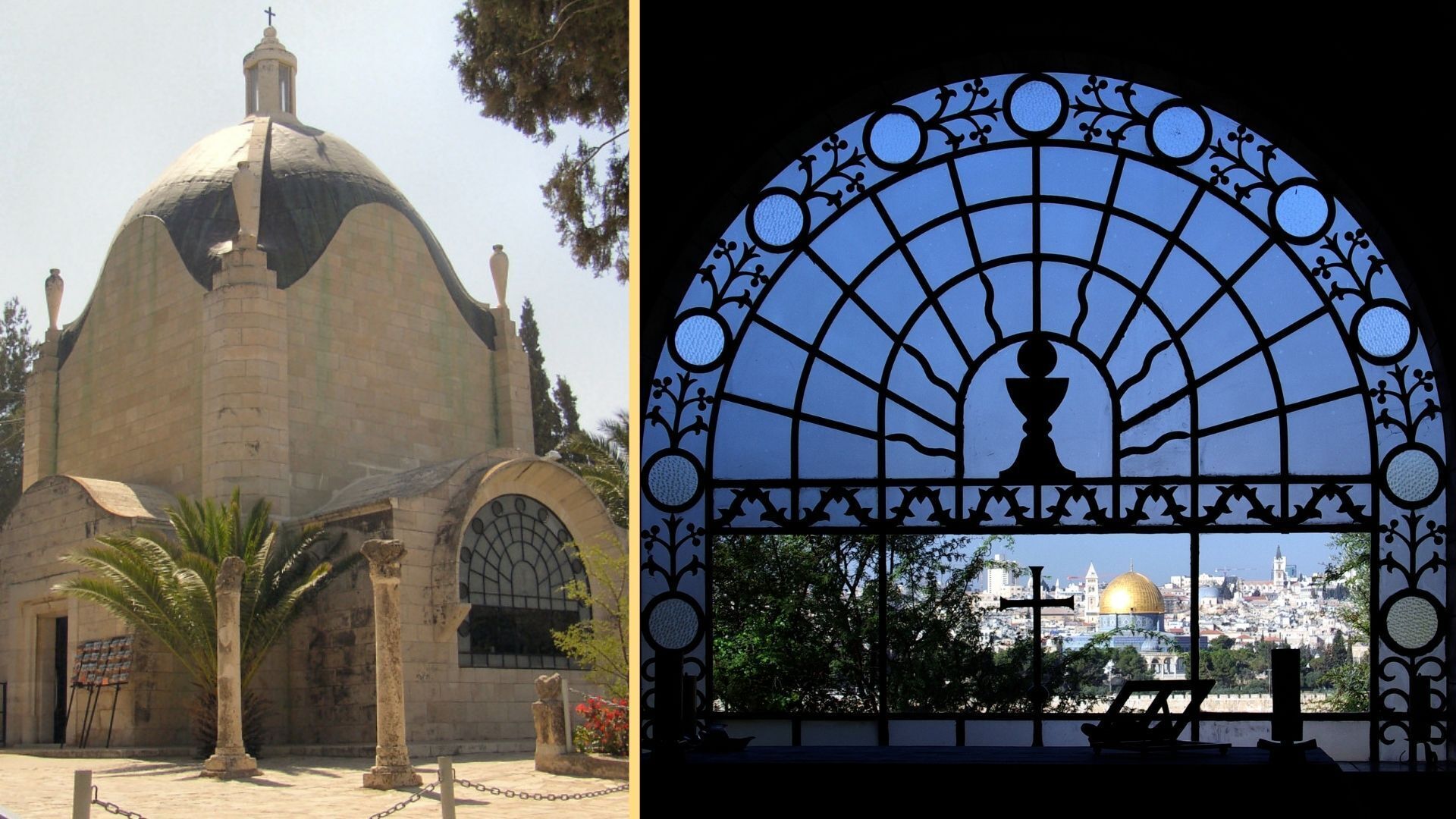Take your Lenten journey to the Mount of Olives in Jerusalem! Come along with Angela Sealana as she spiritually travels to a holy site many people have not heard of before; a chapel called Dominus Flevit, a Latin name meaning, “The Lord Wept.” Dominus Flevit is located halfway along the western slope of the Mount of Olives.
During our journey, you will hear about:
- Why Jesus wept over the city of Jerusalem
- Archeological & architectural history of this tear-shaped chapel
- Encouragement for us from this holy site
We are so grateful to this month’s sponsor, Patricia Brown, who made this podcast episode possible.
Listen On Your Mobile Phone
Listen On YouTube
Jewel for the Journey
"Are we content with ourselves? Because we have organized everything and do not need new visits from the Lord?" - Pope Francis
Get More Out of Your Journey
As he drew near, he saw the city and wept over it, saying, "If this day you only knew what makes for peace - but now it is hidden from your eyes. For the days are coming upon you when your enemies will raise a palisade against you; they will encircle you and hem you in on all sides. They will smash you to the ground and your children within you, and they will not leave one stone upon another within you because you did not recognize the time of your visitation." (Luke 19:41-44)
At that time some Pharisees came to him and said, "Go away, leave this area because Herod wants to kill you." He replied, "Go and tell that fox, ‘Behold, I cast out demons and I perform healings today and tomorrow, and on the third day I accomplish my purpose. Yet I must continue on my way today, tomorrow, and the following day, for it is impossible that a prophet should die outside of Jerusalem.’ "Jerusalem, Jerusalem, you who kill the prophets and stone those sent to you, how many times I yearned to gather your children together as a hen gathers her brood under her wings, but you were unwilling! Behold, your house will be abandoned. (But) I tell you, you will not see me until (the time comes when) you say, ‘Blessed is he who comes in the name of the Lord.’" (Luke 13:31-35)
Anyone listening to these words might say that their meaning is obvious; they were fulfilled in what happened to Jerusalem: The Roman army laid siege to it and sacked it to the point of destruction until the time came that stone did not remain upon stone. I do not deny that Jerusalem was destroyed because of the sins of its inhabitants, but I ask myself if these tears are not also for our Jerusalem. We, in fact, are the Jerusalem that Jesus was mourning, we who think we have the highest knowledge of the Mysteries. (Origen, Homily 38,3)

